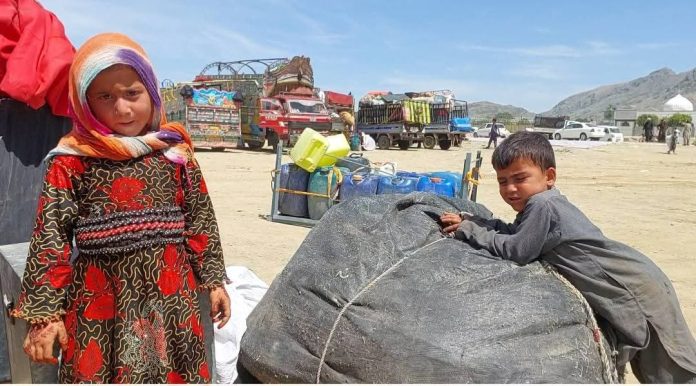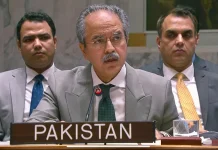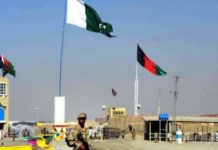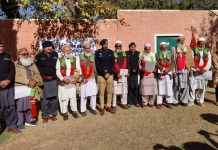By Ashrafuddin Pirzada
TORKHAM: The repatriation of undocumented Afghan nationals from Pakistan through the Torkham border crossing has intensified since April 1, following the expiration of the government’s deadline for illegal residents to leave voluntarily, officials said on Sunday.
According to officials from the United Nations High Commissioner for Refugees (UNHCR) and the Khyber administration, a total of 49,562 Afghan nationals have returned to Afghanistan through the Torkham border from April 1 to April 12. These individuals were residing in various parts of Pakistan without legal documentation.
The returning Afghan nationals include 4,820 families, comprising men, women, and children. Many resided in urban and rural areas of Punjab, Sindh, Khyber Pakhtunkhwa, and Balochistan.
On April 12 alone, 4,123 Afghan nationals, including a large number of deportees, crossed into Afghanistan via Torkham. Officials said the process remained orderly and under strict supervision by law enforcement agencies and border management authorities.

The government of Pakistan launched a countrywide operation earlier this year to identify and expel undocumented foreigners, most of whom were Afghan nationals. The campaign was initiated in phases, with the latest phase focusing on individuals who failed to leave by the set deadlines.
Between April 1 and April 12, daily repatriation continued, with buses and trucks transporting Afghan families to the border crossing point at Torkham. Security personnel monitored the movement, while the local administration facilitated the return process.
Officials at the Torkham border confirmed that the majority of the repatriated individuals did not possess valid refugee cards or travel documents, making them subject to deportation under Pakistani law.
The repatriation process includes documentation checks, biometric verification, and coordination between Pakistani and Afghan border officials. Returnees are allowed to carry their personal belongings, including household items, livestock, and travel essentials.
Temporary shelters and waiting areas have been established on the Afghan side of the border to accommodate the influx of returnees. Afghan authorities have deployed staff to assist returning citizens and provide basic humanitarian support.
The United Nations and other humanitarian organizations have expressed concern over the scale of the repatriations, urging both governments to ensure that the process is conducted with dignity and without human rights violations.
Pakistani authorities have maintained that the campaign targets only undocumented foreigners and does not affect registered Afghan refugees or individuals with valid visas and residence permits.
The mass return has put pressure on Afghan border provinces, where authorities are struggling to absorb the large number of incoming families. Afghan officials in Nangarhar province, which borders Torkham, have reported a growing need for food, shelter, and medical aid.
Local sources in Landikotal and Torkham said the returnees are often seen waiting in long queues, while security forces verify their identities before allowing them to proceed to the Afghan side.
Several families reported difficult journeys from interior Pakistan to the border, citing financial hardship, roadblocks, and limited access to transportation. Some said they were forced to leave behind their livelihoods, homes, and possessions.
The repatriation drive is expected to continue in the coming days, with Pakistani officials stating that more undocumented foreigners will be identified and deported as part of the ongoing crackdown.












